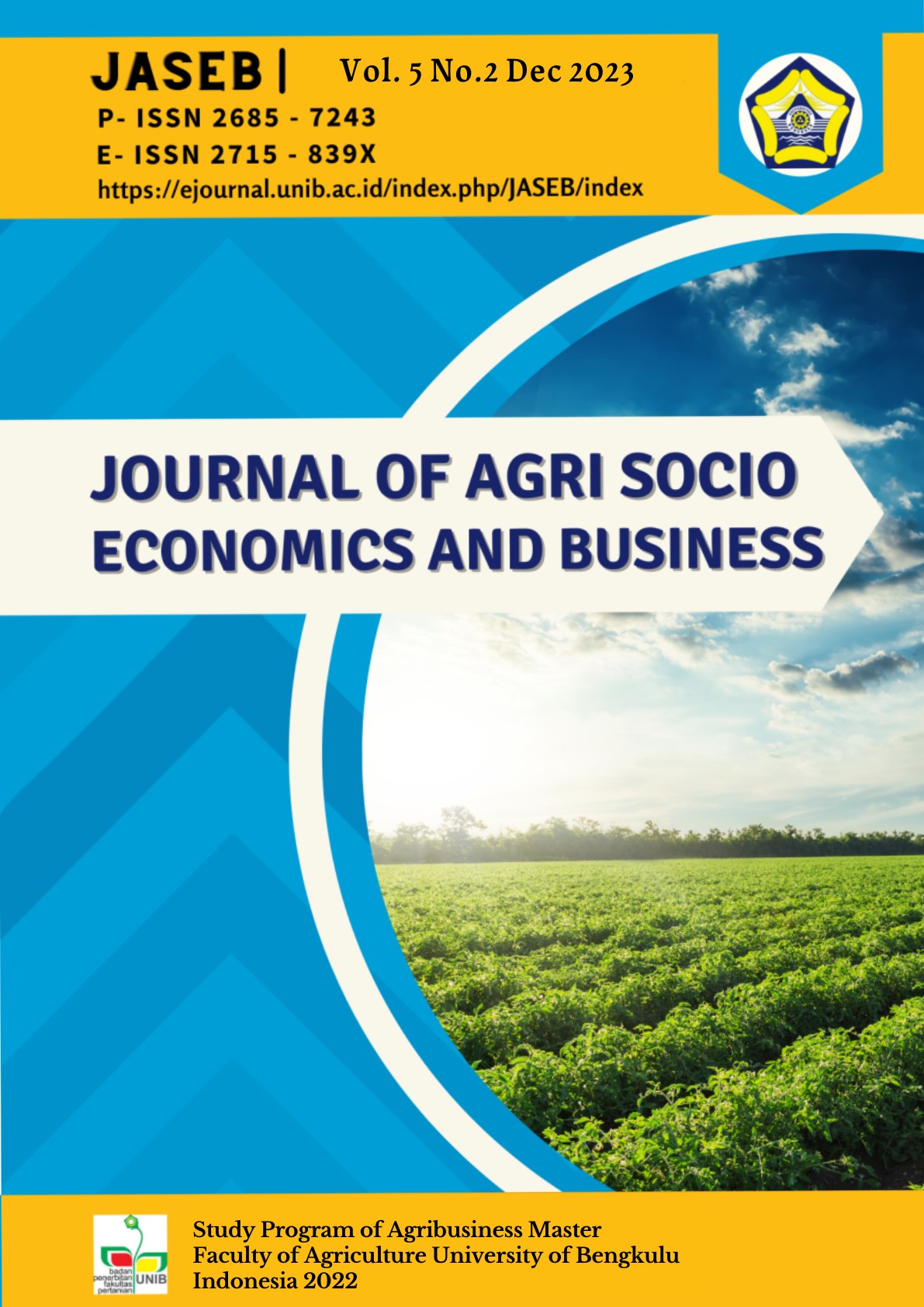Main Article Content
Abstract
Agriculture is a vital sector in the Indonesian economy, especially in rural areas such as Nanjungan Village. Nanjungan Village faces significant challenges regarding the supply of water for agricultural irrigation. The decreasing water discharge has affected the ability to maintain optimal rice production, thus encouraging farmers to look for alternatives in managing their land with land conversion. This is what causes researchers to be motivated to know the socio-economic impacts resulting from land conversion. The method of determining this sample uses (Simple Random Sampling) or a simple random sample. The population is 358 farmers. According to Arikunto 10% - 15% so that the total sample taken was 15 percent of the total corn farmers in Nanjungan village, namely 54 farmers. This research combines quantitative descriptive research methods. The results of the study stated that the social impacts that occurred were the life cycle of the community, such as the planting and harvesting periods, as well as the reduced work rhythm of farmers after converting their land to corn, so that gathering activities for farmers also decreased. The economic impact that occurs is the income of farmers before land conversion, which is Rp. 21,029,148, - and there is an increase in income after land conversion, namely Rp. 31.102.014,-. The difference in income before and after land conversion is IDR 10,072,866..
Article Details
Copyright (c) 2023 Timbul Rasoki, Ana Nurmalia

This work is licensed under a Creative Commons Attribution-ShareAlike 4.0 International License.
An author who publishes in the Journal of Agri Socio Economics and Business agrees to the following terms:
Author retains the copyright and grants the journal the right of first publication of the work simultaneously licensed under the Creative Commons Attribution-ShareAlike 4.0 License that allows others to share the work with an acknowledgement of the work's authorship and initial publication in this journal
Submission of a manuscript implies that the submitted work has not been published before (except as part of a thesis or report, or abstract); that it is not under consideration for publication elsewhere; that its publication has been approved by all co-authors. If and when the manuscript is accepted for publication, the author(s) still hold the copyright and retain publishing rights without restrictions. For the new invention, authors are suggested to manage its patent before published. The license type is CC-BY-SA 4.0.
Journal Agri Socio-Economics and Business is licensed under a Creative Commons Attribution-ShareAlike 4.0 International License.
